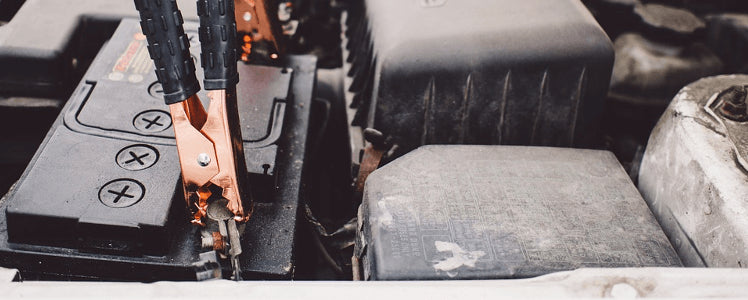
Everything you need to know about changing a car battery
We tend to not miss things until they’re gone, and this is true in the case of car batteries. We probably don’t even realise that they’re there until they’ve stopped working or we start having trouble with them.
Car batteries can last up to five years, however most car batteries will start to fail within three years. Batteries become worn down with everyday use, and they deteriorate gradually every time you charge them.
When it comes to changing a car battery, you might choose to go to a garage, but changing a car battery yourself needn’t be difficult. We tell you everything you need to know.
When should you change your car battery?
You don’t want to spend the time and the money changing your car battery when you don’t actually need it changed. You need to firstly make sure that it is definitely the car battery that is the problem and secondly, that it doesn’t just need charging up. This is something that can be tested.
When car batteries become worn down, you’ll notice that they start to fail more and more. You’ll find the jumpstarts become more common, and so do the ‘no-starts’. Those are just a couple of ways you can tell your car battery is about to die, and when it’s time to start looking at getting a new one installed.
![]()
The signs your car battery needs changing
As time goes on, you will start to experience an increasing amount of issues with your battery’s performance. Like we already said, the symptoms of a failed or a failing battery can take shape in various forms.
Your car battery powers all the electrical accessories in your car, not just the engine itself but also the radio and the lights, for example. You might notice that your radio cuts out suddenly or that your lights are dimmer, these are signs that your car battery needs changing.
What you need
If you are looking to change the car battery yourself, you need the right equipment and tools to ensure everything is done safely.
Before starting, make sure that you have the following:
- The correct replacement car battery
- Gloves
- Safety goggles
- Wrench
- Flat surface for the car to be parked on
Making sure you’ve got the correct battery is so important to your own wellbeing and the car’s. You need to find out the exact type of battery that you’re replacing. The type of battery you need will depend on your car’s make, model and engine size.
At Battery Experts, we stock automotive batteries of all types, including car batteries, motorcycle batteries and more. If you are unsure about what you are looking for, please don’t hesitate to get in touch on 0861 447844 or at sales@batteryexpert.co.za.
![]()
Removing and replacing the car battery
A secure environment is essential when it comes to changing your car battery. This means your car should be parked on a flat surface with the engine off and the handbrake on, and away from any potential dangers or distractions.
Here are the steps to follow when replacing a car battery:
- Prop the car hood and locate the battery
- Detach the cables from the battery terminals
- Remove the bolt/screw used to hold the battery in place
- Lift out the battery with a firm grip
- Clean the battery tray using battery cleaning solution or baking soda
- Place the new battery in the tray – make sure it’s secured in the same way as the old
- Take old battery to a recycling centre
If you are ever unsure about any step in the process, use the owner’s manual. It will give you specifics on your particular car too.
How to save your car battery
There are a few things you can do to save or extend the life of your car battery, including:
Drive more frequently: It might not make sense, but driving more often and for longer periods of time actually helps your car battery. Driving your car little and often won’t give your car battery the chance to charge properly.
Ensure the battery is secure: Making sure that your battery is tightly fastened may seem like an obvious point, but it’s not always something you check. If your battery isn’t securely fastened, it will have an effect on the power of the car and potentially cause more damage to your vehicle too.
Turn the lights off: Accidentally leaving the car lights on has happened to us all, whether it’s for a matter of minutes or overnight. It’s a silly mistake that many motorists make and will cause your battery to die quicker.
Keep an eye on corrosion: Corrosion around the battery terminals will happen over time, but by keeping them clean you can enhance the life of your battery. If you do it regularly enough, it doesn’t require much effort at all – get a toothbrush at the ready!
Don’t use electronics when engine is off: Using the radio, air conditioning or the lights when the car engine isn’t on is one way to quickly drain the car battery. Try and minimise the amount you use these functions when the car is idle to avoid wearing the battery down.
Test the battery frequently: You can test out your car battery and evaluate its condition using a car battery tester. This is something you can buy yourself, or something you can go to a garage for and it’s just a simple way to keep track of its performance and when you should go for a new one.
Take care of your car: How you look after your car will obviously have an effect on how well it runs. Taking care of your car as a whole will ensure you get the best out of it, so keep on top of it all with regular tests and regular maintenance.



